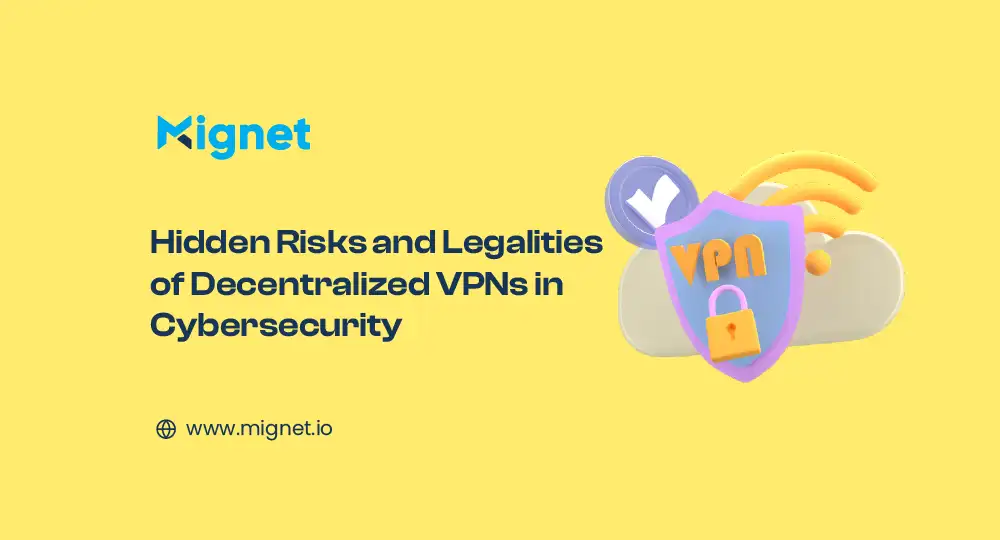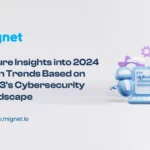
3 Hidden Risks and Legalities of Decentralized VPNs in Cybersecurity
Table of Contents
Introduction
In the ever-evolving landscape of cybersecurity, the rise of decentralized Virtual Private Networks (VPNs) has sparked both intrigue and concern. While decentralized VPNs promise enhanced privacy and security, they also bring forth a set of risks and legal challenges. This blog delves into the complexities of decentralized VPNs, shedding light on the potential pitfalls and legal considerations associated with this innovative approach to online privacy.
Understanding Decentralized VPNs
Decentralized VPNs operate on a peer-to-peer network, allowing users to connect directly with each other instead of relying on a centralized server. This architecture is designed to enhance privacy by eliminating the need for a single point of control or potential surveillance. However, this decentralized model introduces a new set of challenges that users and legal authorities must grapple with.
Risks Associated with Decentralized VPNs
- Lack of Regulation and Accountability:
Decentralized VPNs operate without a central authority, making it challenging to regulate or hold accountable for illicit activities taking place within the network.This lack of oversight can lead to misuse of the network for illegal purposes, such as cybercrime, hacking, or the distribution of malicious content.
- Potential for Abuse:
The decentralized nature of these networks may attract individuals seeking anonymity for nefarious activities, posing a threat to other users and the internet ecosystem at large.There is a risk that the decentralized VPN infrastructure could inadvertently become a haven for cybercriminals.
- Security Concerns:
While the aim is to enhance security and privacy, the decentralized model introduces new vulnerabilities. Weaknesses in the network’s encryption or flaws in the peer-to-peer connections could compromise user data.
Legal Considerations
- Jurisdictional Challenges:
Decentralized VPNs can transcend geographical boundaries, making it difficult for legal authorities to assert jurisdiction. This raises questions about which laws apply and how they can be enforced. - Illegal Content Distribution:
The decentralized nature of these networks could facilitate the distribution of illegal content, leading to legal implications for users and potential legal battles for those hosting or providing access to the decentralized VPN. - Anonymity and Privacy Concerns:
While anonymity is a primary feature of decentralized VPNs, it may clash with legal requirements for identifying individuals engaged in criminal activities. Striking a balance between privacy and lawful access is a delicate challenge. - Network Abuse Liability:
Determining liability for illegal activities conducted within a decentralized VPN can be complex. Identifying responsible parties and holding them accountable poses legal challenges that traditional VPNs, with clear service providers, may not face to the same extent.
Conclusion
Decentralized VPNs represent a bold leap into a more private and secure online environment. However, the risks and legalities associated with this technology should not be underestimated. Striking a balance between user privacy and the need for accountability in the digital realm remains a significant challenge. As the cybersecurity landscape continues to evolve, policymakers, legal experts, and users must collaborate to navigate the complexities of decentralized VPNs and establish a framework that upholds both privacy and the rule of law in our interconnected world.
FAQ on Navigating the Risks and Legalities of Decentralized VPNs
A decentralized VPN operates on a peer-to-peer network, allowing users to connect directly with each other, eliminating the need for a central server. This differs from traditional VPNs that rely on centralized servers to route and encrypt internet traffic for users.
Lack of Regulation: Decentralized VPNs operate without a central authority, making it challenging to regulate and potentially leading to misuse.
Potential for Abuse: The anonymity provided by decentralized VPNs may attract individuals engaging in cybercriminal activities.
Security Concerns: The decentralized model introduces new vulnerabilities, such as weaknesses in encryption or flaws in peer-to-peer connections.
Decentralized VPNs aim to enhance online privacy by eliminating a single point of control. Users can enjoy increased anonymity as their traffic is distributed across the decentralized network, reducing the risk of surveillance.
While not inherently designed for illegal activities, the decentralized nature of these networks may attract individuals seeking anonymity for nefarious purposes, posing a potential risk.
Jurisdictional Challenges: Decentralized VPNs transcend geographical boundaries, raising questions about applicable laws and enforcement.
Illegal Content Distribution: The decentralized model could facilitate the distribution of illegal content, leading to legal implications for users.
Anonymity and Privacy Concerns: Balancing user privacy with legal requirements for identifying individuals engaged in criminal activities is a complex challenge.
Users can enhance security by selecting reputable decentralized VPN providers, ensuring encryption protocols are robust, and regularly updating their software. Vigilance against potential vulnerabilities is crucial.
Decentralized VPNs provide a higher degree of anonymity than traditional VPNs, but absolute anonymity is challenging due to potential vulnerabilities and the need for legal compliance in certain situations..
The future of decentralized VPNs is uncertain. It will likely depend on the industry's ability to address security concerns, collaborate with regulators, and strike a balance between user privacy and legal compliance. Adoption may increase as the technology matures.
Decentralized VPNs can be considered for business use, especially in remote or privacy-sensitive operations. However, enterprises must carefully evaluate the legal implications, security features, and potential risks before adopting this technology.
Policymakers and industry stakeholders can collaborate to establish a regulatory framework that ensures user privacy while addressing concerns related to illegal activities. Engaging in open dialogue and promoting responsible use will be crucial in navigating this decentralized frontier.
Unlock productivity: Join our Email List
Download Our Profile
Get to know more about Mignet Technologies by downloading our profile.



